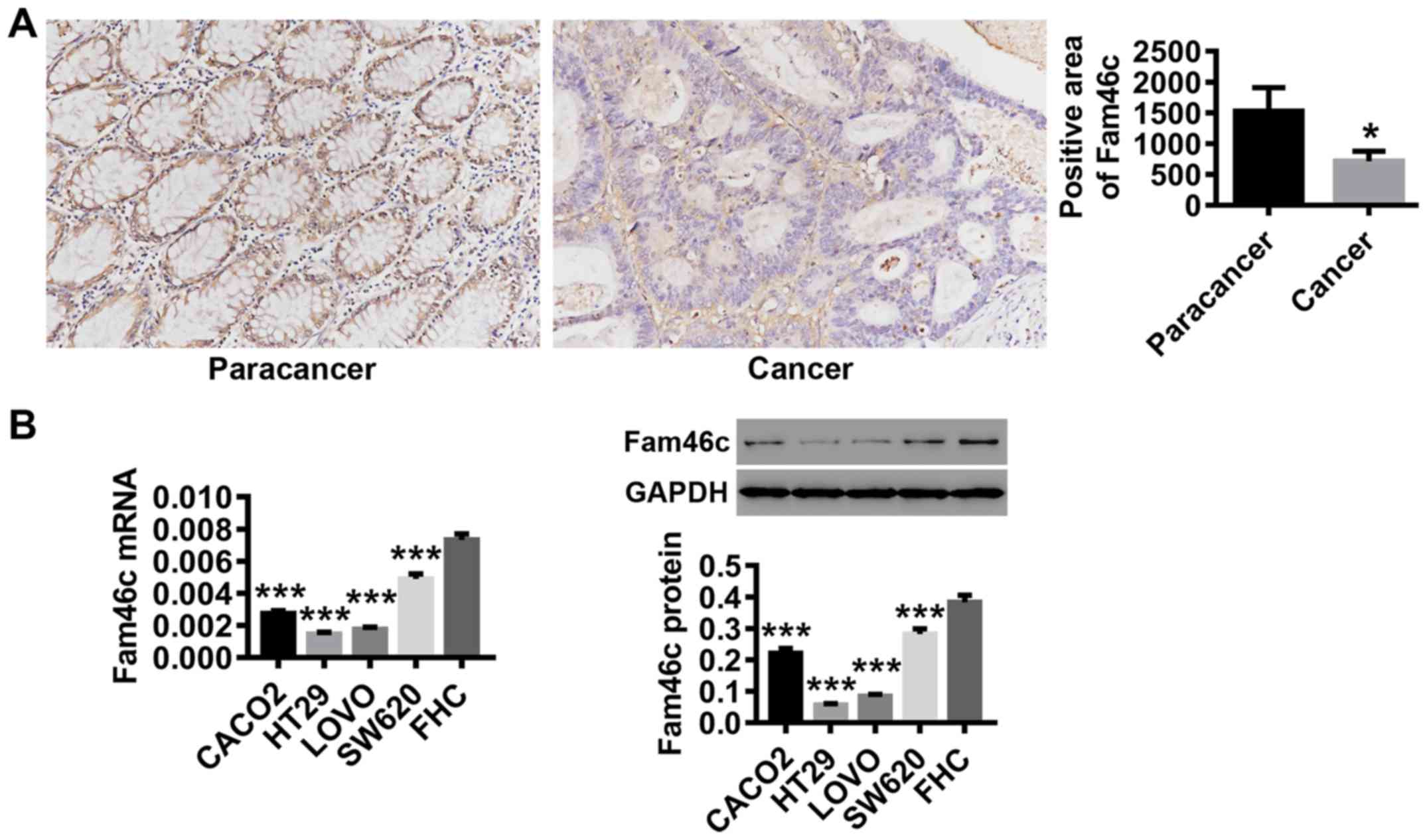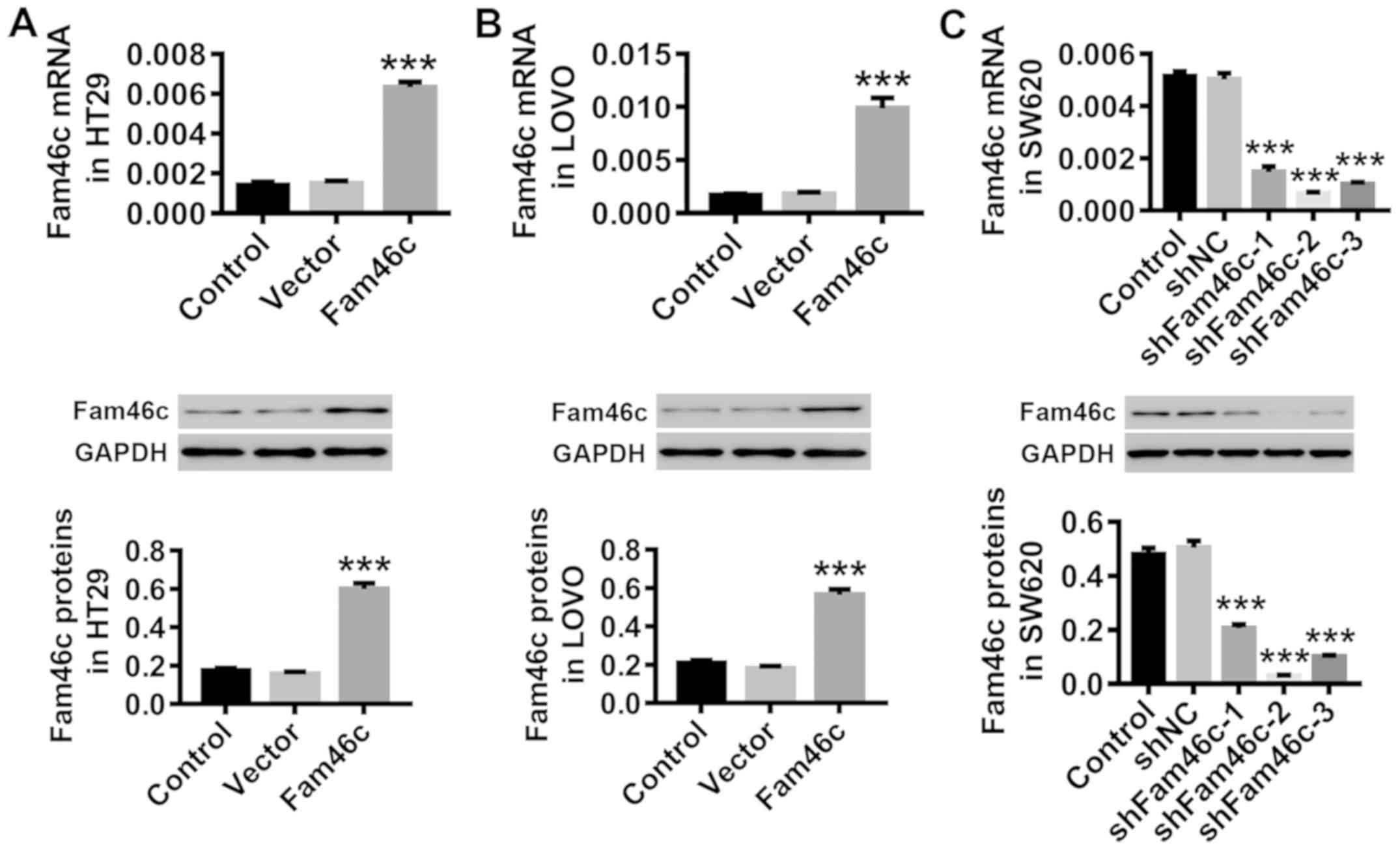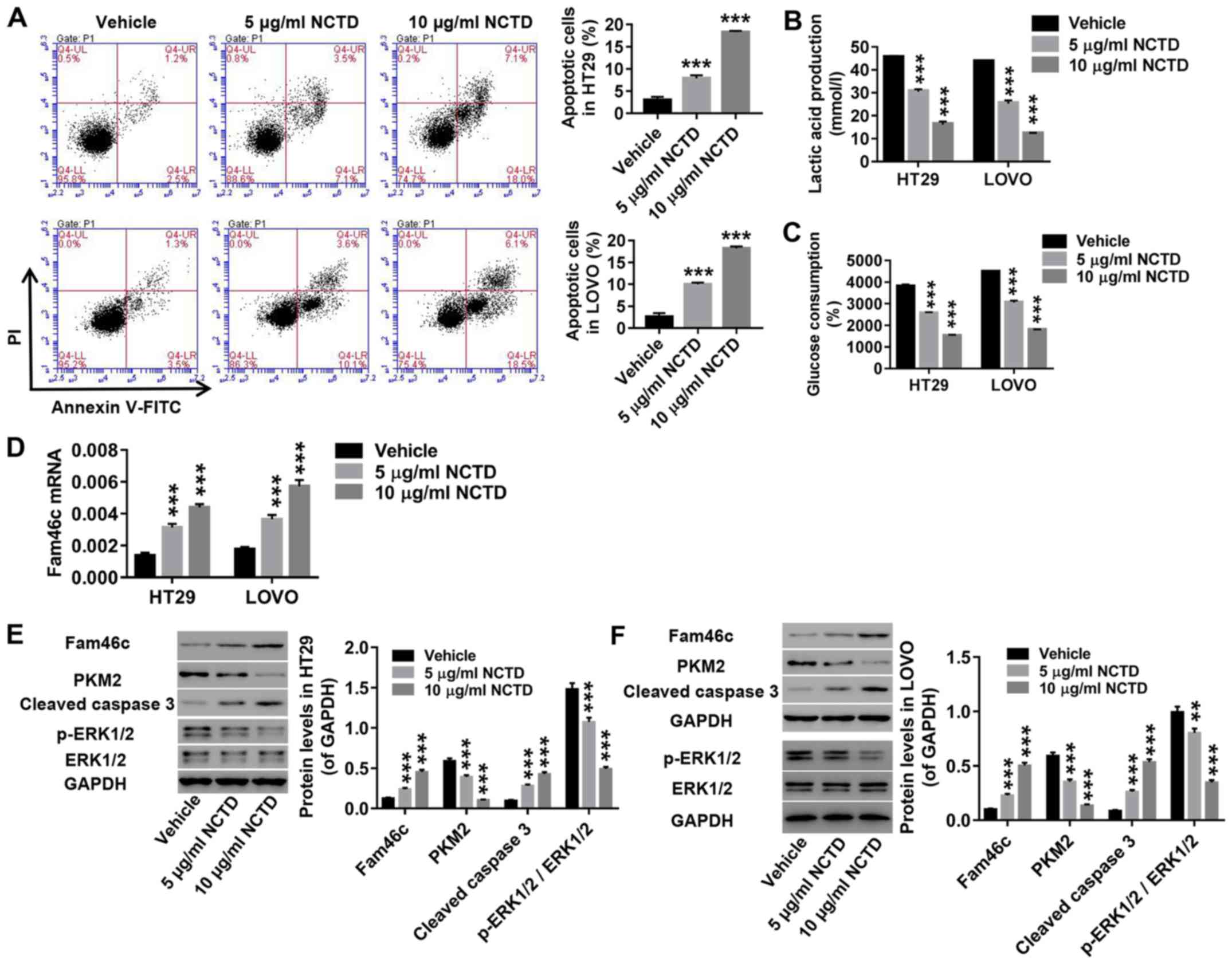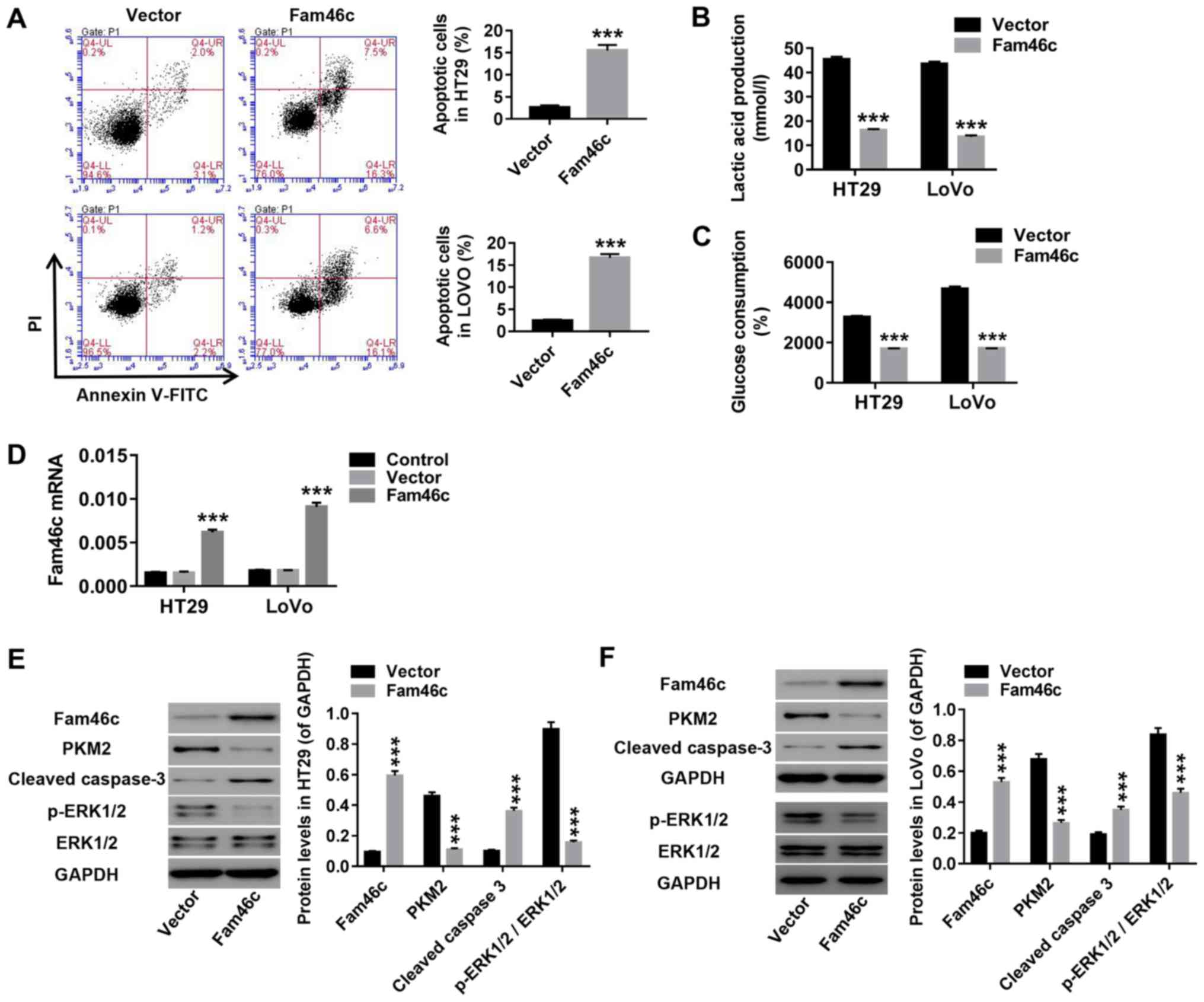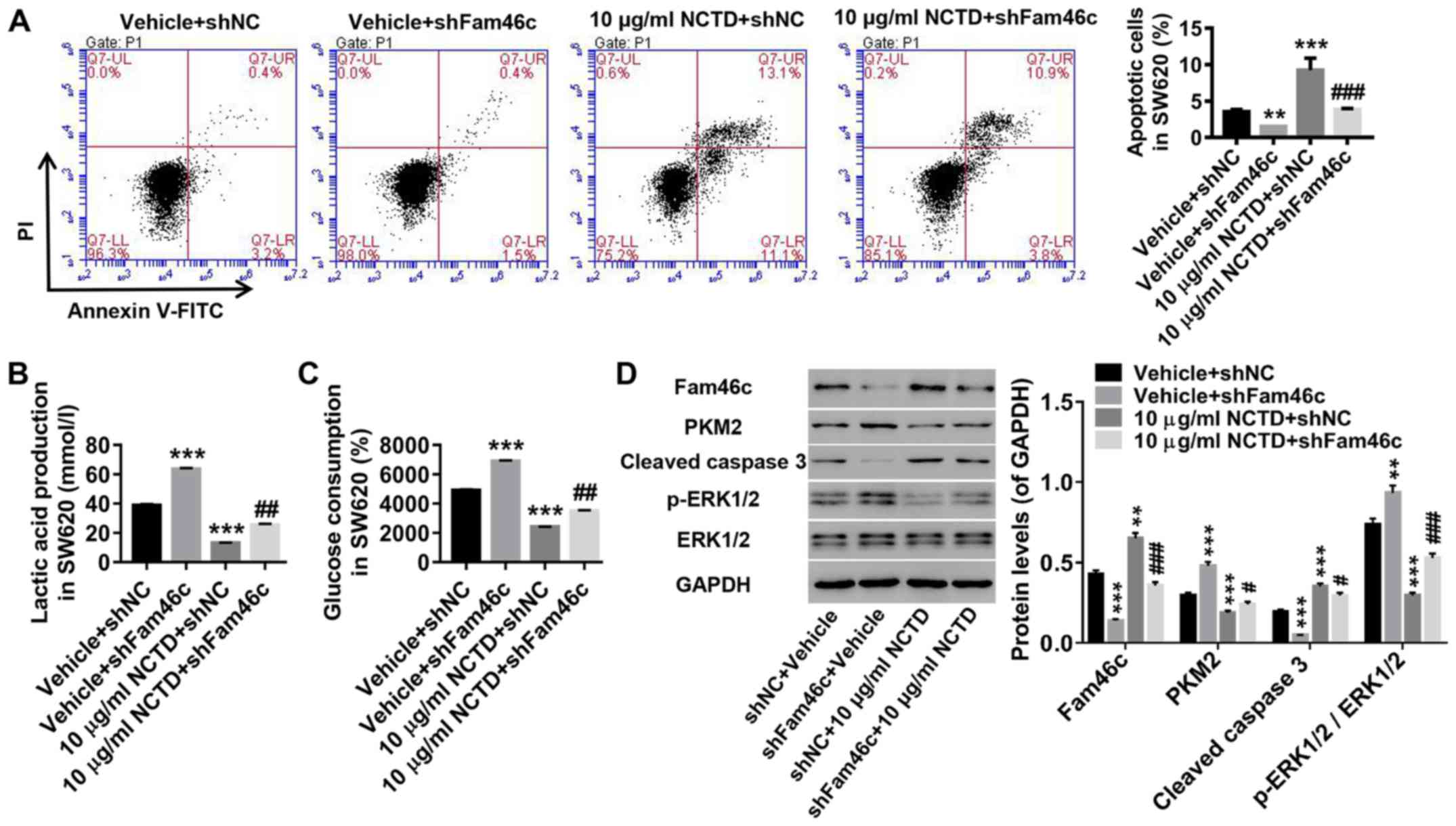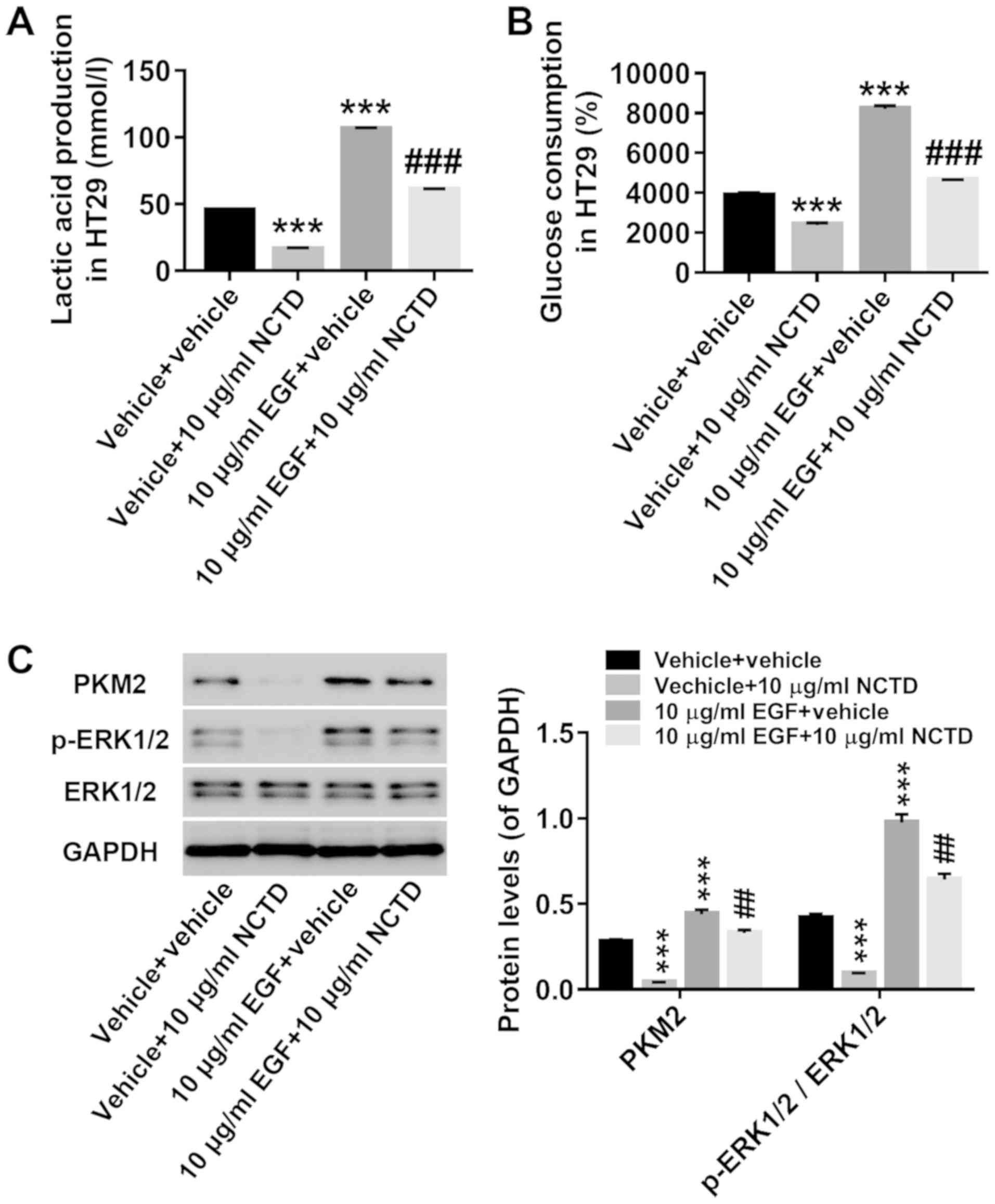|
1
|
Siegel RL, Miller KD and Jemal A: Cancer
statistics, 2016. CA Cancer J Clin. 66:7–30. 2016. View Article : Google Scholar : PubMed/NCBI
|
|
2
|
Ung L, Lam AY, Morris D and Chua T:
Tissue-based biomarkers predicting outcomes in metastatic
colorectal cancer: A review. Clin Transl Oncol. 16:425–435. 2014.
View Article : Google Scholar : PubMed/NCBI
|
|
3
|
Bardhan K and Liu K: Epigenetics and
colorectal cancer pathogenesis. Cancers (Basel). 5:676–713. 2013.
View Article : Google Scholar : PubMed/NCBI
|
|
4
|
Zoratto F, Rossi L, Verrico M, Papa A,
Basso E, Zullo A, Tomao L, Romiti A, Lo Russo G and Tomao S: Focus
on genetic and epigenetic events of colorectal cancer pathogenesis:
Implications for molecular diagnosis. Tumor Biol. 35:6195–6206.
2014. View Article : Google Scholar
|
|
5
|
Chen W, Zheng R, Baade PD, Zhang S, Zeng
H, Bray F, Jemal A, Yu XQ and He J: Cancer statistics in China,
2015. CA Cancer J Clin. 66:115–132. 2016. View Article : Google Scholar : PubMed/NCBI
|
|
6
|
Liu S, Zheng R, Zhang M, Zhang S, Sun X
and Chen W: Incidence and mortality of colorectal cancer in China,
2011. Chin J Cancer Res. 27:22–28. 2015.PubMed/NCBI
|
|
7
|
Chen W, Zheng R, Zeng H, Zhang S and He J:
Annual report on status of cancer in China, 2011. Chin J Cancer
Res. 27:2–12. 2015. View Article : Google Scholar : PubMed/NCBI
|
|
8
|
Sostres C, Gargallo CJ and Lanas A:
Aspirin, cyclooxygenase inhibition and colorectal cancer. World J
Gastrointest Pharmacol Ther. 5:40–49. 2014. View Article : Google Scholar : PubMed/NCBI
|
|
9
|
Lacy AM, García-Valdecasas JC, Delgado S,
Castells A, Taurá P, Piqué JM and Visa J: Laparoscopy-assisted
colectomy versus open colectomy for treatment of non-metastatic
colon cancer: A randomised trial. Lancet. 359:2224–2229. 2002.
View Article : Google Scholar : PubMed/NCBI
|
|
10
|
André T, Boni C, Navarro M, Tabernero J,
Hickish T, Topham C, Bonetti A, Clingan P, Bridgewater J, Rivera F
and de Gramont A: Improved overall survival with oxaliplatin,
fluorouracil, and leucovorin as adjuvant treatment in stage II or
III colon cancer in the MOSAIC trial. J Clin Oncol. 27:3109–3116.
2009. View Article : Google Scholar : PubMed/NCBI
|
|
11
|
Wang J, Wang H, Liu A, Fang C, Hao J and
Wang Z: Lactate dehydrogenase A negatively regulated by miRNAs
promotes aerobic glycolysis and is increased in colorectal cancer.
Oncotarget. 6:19456–19468. 2015. View Article : Google Scholar : PubMed/NCBI
|
|
12
|
Xu X, Li J, Sun X, Guo Y, Chu D, Wei L, Li
X, Yang G, Liu X, Yao L, et al: Tumor suppressor NDRG2 inhibits
glycolysis and glutaminolysis in colorectal cancer cells by
repressing c-Myc expression. Oncotarget. 6:26161–26176. 2015.
View Article : Google Scholar : PubMed/NCBI
|
|
13
|
Donnelly RP and Finlay DK: Glucose,
glycolysis and lymphocyte responses. Mol Immunol. 68:513–519. 2015.
View Article : Google Scholar : PubMed/NCBI
|
|
14
|
Ha TK, Her NG, Lee MG, Ryu BK, Lee JH, Han
J, Jeong SI, Kang MJ, Kim NH, Kim HJ and Chi SG: Caveolin-1
increases aerobic glycolysis in colorectal cancers by stimulating
HMGA1-mediated GLUT3 transcription. Cancer Res. 72:4097–4109. 2012.
View Article : Google Scholar : PubMed/NCBI
|
|
15
|
Chaneton B and Gottlieb E: Rocking cell
metabolism: Revised functions of the key glycolytic regulator PKM2
in cancer. Trends Biochem Sci. 37:309–316. 2012. View Article : Google Scholar : PubMed/NCBI
|
|
16
|
Efferth T, Rauh R, Kahl S, Tomicic M,
Böchzelt H, Tome ME, Briehl MM, Bauer R and Kaina B: Molecular
modes of action of cantharidin in tumor cells. Biochem Pharmacol.
69:811–818. 2005. View Article : Google Scholar : PubMed/NCBI
|
|
17
|
Yang EB, Tang WY, Zhang K, Cheng LY and
Mack PO: Norcantharidin inhibits growth of human HepG2
cell-transplanted tumor in nude mice and prolongs host survival.
Cancer Lett. 117:93–98. 1997. View Article : Google Scholar : PubMed/NCBI
|
|
18
|
Yang PY, Chen MF, Kao YH, Hu DN, Chang FR
and Wu YC: Norcantharidin induces apoptosis of breast cancer cells:
Involvement of activities of mitogen activated protein kinases and
signal transducers and activators of transcription. Toxicol In
Vitro. 25:699–707. 2011. View Article : Google Scholar : PubMed/NCBI
|
|
19
|
Yeh CB, Hsieh MJ, Hsieh YH, Chien MH,
Chiou HL and Yang SF: Antimetastatic effects of norcantharidin on
hepatocellular carcinoma by transcriptional inhibition of MMP-9
through modulation of NF-kB activity. PLoS One. 7:e310552012.
View Article : Google Scholar : PubMed/NCBI
|
|
20
|
Zheng J, Du W, Song LJ, Zhang R, Sun LG,
Chen FG and Wei XT: Norcantharidin induces growth inhibition and
apoptosis of glioma cells by blocking the Raf/MEK/ERK pathway.
World J Surg Oncol. 12:2072014. View Article : Google Scholar : PubMed/NCBI
|
|
21
|
Chen YJ, Kuo CD, Tsai YM, Yu CC, Wang GS
and Liao HF: Norcantharidin induces anoikis through Jun-N-terminal
kinase activation in CT26 colorectal cancer cells. Anticancer
Drugs. 19:55–64. 2008. View Article : Google Scholar : PubMed/NCBI
|
|
22
|
Chen YN, Chen JC, Yin SC, Wang GS, Tsauer
W, Hsu SF and Hsu SL: Effector mechanisms of norcantharidin-induced
mitotic arrest and apoptosis in human hepatoma cells. Int J Cancer.
100:158–165. 2002. View Article : Google Scholar : PubMed/NCBI
|
|
23
|
Peng C, Liu X, Liu E, Xu K, Niu W, Chen R,
Wang J, Zhang Z, Lin P, Wang J, et al: Norcantharidin induces HT-29
colon cancer cell apoptosis through the alphavbeta6-extracellular
signal-related kinase signaling pathway. Cancer Sci. 100:2302–2308.
2009. View Article : Google Scholar : PubMed/NCBI
|
|
24
|
Huang Y, Liu Q, Liu K, Yagasaki K and
Zhang G: Suppression of growth of highly-metastatic human breast
cancer cells by norcantharidin and its mechanisms of action.
Cytotechnology. 59:201–208. 2009. View Article : Google Scholar : PubMed/NCBI
|
|
25
|
Chen YJ, Shieh CJ, Tsai TH, Kuo CD, Ho LT,
Liu TY and Liao HF: Inhibitory effect of norcantharidin, a
derivative compound from blister beetles, on tumor invasion and
metastasis in CT26 colorectal adenocarcinoma cells. Anticancer
Drugs. 16:293–299. 2005. View Article : Google Scholar : PubMed/NCBI
|
|
26
|
Chen YJ, Chang WM, Liu YW, Lee CY, Jang
YH, Kuo CD and Liao HF: A small-molecule metastasis inhibitor,
norcantharidin, downregulates matrix metalloproteinase-9 expression
by inhibiting Sp1 transcriptional activity in colorectal cancer
cells. Chem Biol Interact. 181:440–446. 2009. View Article : Google Scholar : PubMed/NCBI
|
|
27
|
Peng C, Li Z, Niu Z, Niu W, Xu Z, Gao H,
Niu W, Wang J, He Z, Gao C, et al: Norcantharidin suppresses colon
cancer cell epithelial-mesenchymal transition by inhibiting the
αvβ6-ERK-Ets1 signaling pathway. Sci Rep. 6:205002016. View Article : Google Scholar : PubMed/NCBI
|
|
28
|
Radisky DC, Kenny PA and Bissell MJ:
Fibrosis and cancer: Do myofibroblasts come also from epithelial
cells via EMT? J Cell Biochem. 101:830–839. 2007. View Article : Google Scholar : PubMed/NCBI
|
|
29
|
Xia J, He LQ and Su X: Interventional
mechanisms of herbs or herbal extracts on renal interstitial
fibrosis. J Integr Med. 14:165–173. 2016. View Article : Google Scholar : PubMed/NCBI
|
|
30
|
Boyd KD, Ross FM, Walker BA, Wardell CP,
Tapper WJ, Chiecchio L, Dagrada G, Konn ZJ, Gregory WM, Jackson GH,
et al: Mapping of chromosome 1p deletions in myeloma identifies
FAM46C at 1p12 and CDKN2C at 1p32. 3 as being genes in regions
associated with adverse survival. Clin Cancer Res. 17:7776–7784.
2011. View Article : Google Scholar : PubMed/NCBI
|
|
31
|
Prideaux SM, Conway O'Brien E and
Chevassut TJ: The genetic architecture of multiple myeloma. Adv
Hematol. 2014:8640582014. View Article : Google Scholar : PubMed/NCBI
|
|
32
|
Zhu YX, Shi CX, Bruins LA, Jedlowski P,
Wang X, Kortüm KM, Luo M, Ahmann JM, Braggio E and Stewart AK: Loss
of FAM46C promotes cell survival in myeloma. Cancer Res.
77:4317–4327. 2017. View Article : Google Scholar : PubMed/NCBI
|
|
33
|
Mroczek S, Chlebowska J, Kuliński TM,
Gewartowska O, Gruchota J, Cysewski D, Liudkovska V, Borsuk E,
Nowis D and Dziembowski A: The non-canonical poly (A) polymerase
FAM46C acts as an onco-suppressor in multiple myeloma. Nat Commun.
8:6192017. View Article : Google Scholar : PubMed/NCBI
|
|
34
|
Zhang QY, Yue XQ, Jiang YP, Han T and Xin
HL: FAM46C is critical for the anti-proliferation and pro-apoptotic
effects of norcantharidin in hepatocellular carcinoma cells. Sci
Rep. 7:3962017. View Article : Google Scholar : PubMed/NCBI
|
|
35
|
Wan XY, Zhai XF, Jiang YP, Han T, Zhang QY
and Xin HL: Antimetastatic effects of norcantharidin on
hepatocellular carcinoma cells by up-regulating FAM46C expression.
Am J Transl Res. 9:155–166. 2017.PubMed/NCBI
|
|
36
|
Peng F, Wei YQ, Tian L, Yang L, Zhao X, Lu
Y, Mao YQ, Kan B, Lei S, Wang GS, et al: Induction of apoptosis by
norcantharidin in human colorectal carcinoma cell lines:
Involvement of the CD95 receptor/ligand. J Cancer Res Clin Oncol.
128:223–230. 2002. View Article : Google Scholar : PubMed/NCBI
|
|
37
|
Chang C, Zhu YQ, Mei JJ, Liu SQ and Luo J:
Involvement of mitochondrial pathway in NCTD-induced cytotoxicity
in human hepG2 cells. J Exp Clin Cancer Res. 29:1452010. View Article : Google Scholar : PubMed/NCBI
|
|
38
|
Liu D, Shi P, Yin X, Chen Z and Zhang X:
Effect of norcantharidin on the human breast cancer Bcap-37 cells.
Connect Tissue Res. 53:508–512. 2012. View Article : Google Scholar : PubMed/NCBI
|
|
39
|
Hong J, Kang B, Kim A, Hwang S, Ahn J, Lee
S, Kim J, Park JH and Cheon DS: Development of a highly sensitive
real-time one step RT-PCR combined complementary locked primer
technology and conjugated minor groove binder probe. Virol J.
8:3302011. View Article : Google Scholar : PubMed/NCBI
|
|
40
|
Livak KJ and Schmittgen TD: Analysis of
relative gene expression data using real-time quantitative PCR and
the 2(-Delta Delta C(T)) method. Methods. 25:402–408. 2001.
View Article : Google Scholar : PubMed/NCBI
|
|
41
|
Porter AG and Jänicke RU: Emerging roles
of caspase-3 in apoptosis. Cell Death Differ. 6:99–104. 1999.
View Article : Google Scholar : PubMed/NCBI
|
|
42
|
Liang J, Cao R, Zhang Y, Xia Y, Zheng Y,
Li X, Wang L, Yang W and Lu Z: PKM2 dephosphorylation by Cdc25A
promotes the Warburg effect and tumorigenesis. Nat Commun.
7:124312016. View Article : Google Scholar : PubMed/NCBI
|
|
43
|
Etokebe GE, Zienolddiny S, Kupanovac Z,
Enersen M, Balen S, Flego V, Bulat-Kardum L, Radojčić-Badovinac A,
Skaug V, Bakke P, et al: Association of the FAM46A gene VNTRs and
BAG6 rs3117582 SNP with non small cell lung cancer (NSCLC) in
Croatian and Norwegian populations. PLoS One. 10:e01226512015.
View Article : Google Scholar : PubMed/NCBI
|
|
44
|
Kang HC, Kim IJ, Park JH, Shin Y, Ku JL,
Jung MS, Yoo BC, Kim HK and Park JG: Identification of genes with
differential expression in acquired drug-resistant gastric cancer
cells using high-density oligonucleotide microarrays. Clin Cancer
Res. 10:272–284. 2004. View Article : Google Scholar : PubMed/NCBI
|
|
45
|
Liang T, Ye X, Liu Y, Qiu X, Li Z, Tian B
and Yan D: FAM46B inhibits cell proliferation and cell cycle
progression in prostate cancer through ubiquitination of β-catenin.
Exp Mol Med. 50:1–12. 2018. View Article : Google Scholar : PubMed/NCBI
|
|
46
|
Tanaka H, Kanda M, Shimizu D, Tanaka C,
Kobayashi D, Hayashi M, Iwata N, Yamada S, Fujii T, Nakayama G, et
al: FAM46C serves as a predictor of hepatic recurrence in patients
with resectable gastric cancer. Ann Surg Oncol. 24:3438–3445. 2017.
View Article : Google Scholar : PubMed/NCBI
|
|
47
|
Kok SH, Cheng SJ, Hong CY, Lee JJ, Lin SK,
Kuo YS, Chiang CP and Kuo MY: Norcantharidin-induced apoptosis in
oral cancer cells is associated with an increase of proapoptotic to
antiapoptotic protein ratio. Cancer Lett. 217:43–52. 2005.
View Article : Google Scholar : PubMed/NCBI
|
|
48
|
Luan J, Duan H, Liu Q, Yagasaki K and
Zhang G: Inhibitory effects of norcantharidin against human lung
cancer cell growth and migration. Cytotechnology. 62:349–355. 2010.
View Article : Google Scholar : PubMed/NCBI
|
|
49
|
Yang W, Zheng Y, Xia Y, Ji H, Chen X, Guo
F, Lyssiotis CA, Aldape K, Cantley LC and Lu Z: ERK1/2-dependent
phosphorylation and nuclear translocation of PKM2 promotes the
Warburg effect. Nat Cell Biol. 14:1295–1304. 2012. View Article : Google Scholar : PubMed/NCBI
|
|
50
|
Yang W and Lu Z: Nuclear PKM2 regulates
the Warburg effect. Cell Cycle. 12:3154–3158. 2013. View Article : Google Scholar : PubMed/NCBI
|
|
51
|
Diener S, Bayer S, Sabrautzki S, Wieland
T, Mentrup B, Przemeck GK, Rathkolb B, Graf E, Hans W, Fuchs H, et
al: Exome sequencing identifies a nonsense mutation in Fam46a
associated with bone abnormalities in a new mouse model for
skeletal dysplasia. Mamm Genome. 27:111–121. 2016. View Article : Google Scholar : PubMed/NCBI
|















